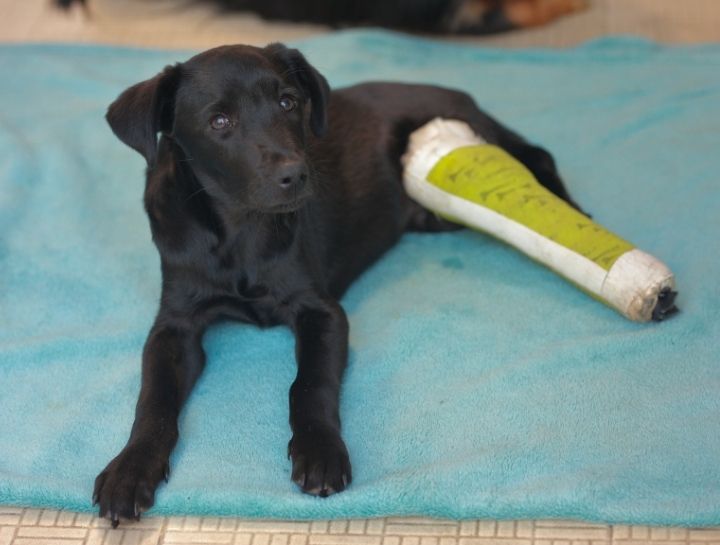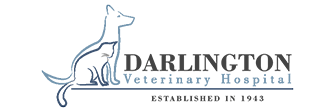Orthopaedic Pet Surgery
Cruciate, patella luxation, and hip surgery
Orthopaedic surgery is just one of the many types of surgery offered at Darlington Veterinary Hospital. Rather than referring to a single surgery, orthopaedic surgery is an umbrella term used to describe several bone and joint repair procedures.
Though orthopedic surgery is most commonly used to treat fractured bones, it can also be used to treat congenital defects such as elbow dysplasia and patellar luxation. Joint replacement, such as total knee replacement, is also considered an orthopaedic surgery.
Conditions that can be treated with orthopaedic surgery include:
- Amputation
- Bone Plating
- Cranial Cruciate Ligament (CCL) Repair
- Femoral Head and Neck Ostectomy (FHO)
- Joint Surgery
- Long Bone Fractures
- Patella Luxation Repair
- Pelvic Fractures
- Tibial Plateau Leveling Osteotomy (TPLO)
Any pet that undergoes orthopaedic surgery will require at least two weeks of restricted exercise and constant monitoring. It’s important to understand that almost all orthopedic surgeries come with a lengthy recovery time and, depending on how well your pet is doing towards the end of their recovery, we may recommend canine rehabilitation.
Orthopedic Pet Surgery FAQs
We understand having your pet undergo surgery can seem scary, and you may have questions. Our compassionate team is ready to answer your questions and provide peace of mind throughout your pet’s care. Common questions for our vet include:
What is the recovery process like?
Recovery times vary based on the type of surgery performed. Your pet will typically need a period of rest, restricted activity, and specific aftercare instructions, such as wound care and medication administration. We’ll schedule follow-up appointments to monitor your pet’s progress and address concerns.
How can I help my pet recover at home?
To facilitate your pet’s recovery at home, provide a quiet, comfortable space to rest, limit their activity as instructed, and follow any medication schedules closely. It’s also important to monitor their surgical site for any changes and keep them from licking or chewing at the incision.
What are the signs of complications after surgery?
Signs that may indicate complications include excessive swelling at the surgical site, persistent bleeding, a significant increase in pain despite medication, loss of appetite, vomiting, or unusual lethargy. If you observe any of these symptoms, contact us immediately for guidance.
Schedule an appointment by calling us at (905) 851-0142 or request online to learn more about orthopaedic surgery.

